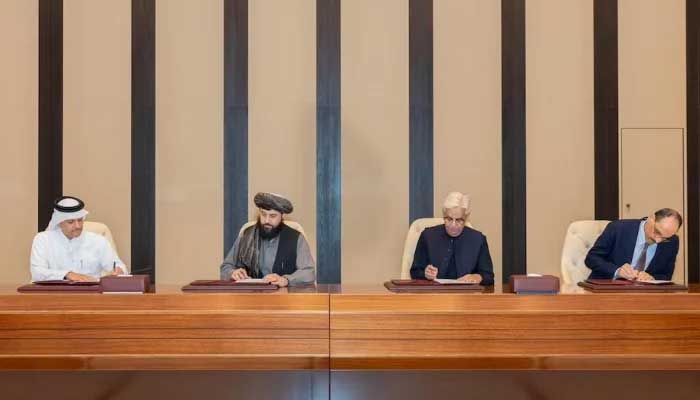Copyright thedailycpec

Pakistan and the Afghan Taliban resumed their negotiations in Istanbul for the third round of talks aimed at resolving tensions after deadly border clashes earlier this month. The discussions focus on ending cross-border terrorism and establishing mechanisms to prevent militants from operating across the Pakistan-Afghanistan border. Background of Border Tensions Earlier in October, unprovoked attacks along the border escalated into deadly skirmishes. Pakistan Armed Forces repelled multiple attacks, killing over 200 Taliban and affiliated militants, while 23 Pakistani soldiers were martyred. In retaliation, Pakistan conducted precision airstrikes in Afghanistan’s Kandahar and Kabul, targeting militant strongholds. Following the clashes, Pakistan temporarily closed border crossings, citing the security of its citizens as a priority over trade or movement of goods. Pakistan has repeatedly accused the Taliban regime of allowing Afghan soil to be used as a base for Tehreek-i-Taliban Pakistan (TTP) operations and acting as a proxy for external powers. Pakistan’s Final Position During the Istanbul talks, Pakistan presented its “final position” to the Afghan side, emphasizing that: No compromise will be made on cross-border terrorism demands.The Taliban must dismantle terrorist networks, particularly TTP, operating from Afghan soil.Any tolerance or shelter for militants targeting Pakistan is unacceptable. Pakistan’s delegation urged the Taliban to take concrete, verifiable steps to prevent future attacks. Security officials expressed frustration over the Taliban’s inflexibility, describing their stance as “illogical” and “detached from ground realities.” Afghanistan’s Response The Afghan delegation, while emphasizing dialogue as the preferred solution, maintained that they could not compromise on national sovereignty. Afghan officials proposed the establishment of a quadrilateral channel to exchange information on violations and to monitor compliance with the ceasefire agreed in Doha on October 19. Despite the ongoing optimism expressed by some Afghan negotiators, there was resistance to putting guarantees in writing regarding the TTP, leaving Pakistan increasingly frustrated. Progress and Mediators’ Role Mediators from Turkiye and Qatar have been attempting to bridge the gap between the two sides. Early sessions showed encouraging progress and engagement, but optimism waned as discussions stretched into the evening. Diplomatic sources stressed that remaining disagreements are resolvable but depend entirely on the Taliban’s willingness to cooperate in good faith. Talks continued for three straight days, with deliberations being considered for a possible fourth day. Security Implications and Regional Stability The outcome of the Istanbul talks holds critical implications for regional security, as unresolved tensions could reignite violence along the Pakistan-Afghanistan border. Pakistan has maintained a principled stance, making clear that national security concerns outweigh all other considerations, including trade and diplomatic courtesies.



